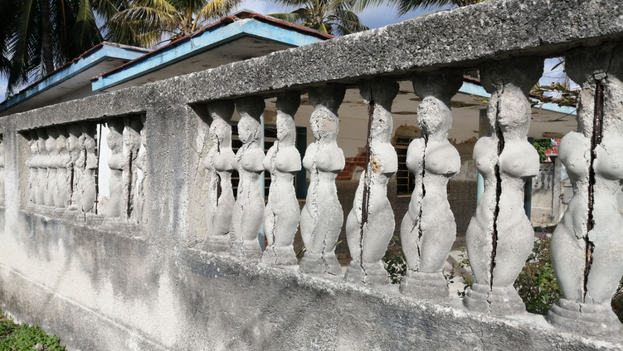
![]() 14ymedio, Yoani Sanchez, Generation Y, Havana, 11 February 2021 — The house is flat and ugly, with a makeshift structure because of the haste. To build it, its inhabitants could not hire a private architect, nor would they be able to in the future. The list of self-employed occupations prohibited in Cuba not only includes those professionals, but also journalists, film producers, lawyers, undertakers, scientific researchers, and vehicle manufacturers.
14ymedio, Yoani Sanchez, Generation Y, Havana, 11 February 2021 — The house is flat and ugly, with a makeshift structure because of the haste. To build it, its inhabitants could not hire a private architect, nor would they be able to in the future. The list of self-employed occupations prohibited in Cuba not only includes those professionals, but also journalists, film producers, lawyers, undertakers, scientific researchers, and vehicle manufacturers.
The list of private activities banned on the island was finally published this Wednesday and its content managed to exceed the most pessimistic forecasts. Not only does it expressly prohibit work that until now was done in the field of illegality, such as the management of private galleries or accounting, but it also strictly sets the limits that the State does not want private initiative to cross. It is, in short, a list of the fears of a political system that seeks to continue to control the main spaces of the lives of its citizens.
This list is proof of the backward mentality that governs decision-makers on this Island. They continue to think that they can prevent a musician from building a small recording studio in their bathroom to produce their records and those of other colleagues; they believe they will be able to prevent someone from taking wheels and casings to build vehicles; or to keep legal counsel from a defendant. They fantasize that they will be able to clip the wings of someone who lays out a book of poems, or who twists tobacco to sell on their own.
The list with these 124 banned occupations also reveals the arrogance that imbues those who wrote it, so much an arrogance that it is difficult to connect the image with that of an economically bankrupt regime
The list with these 124 banned occupations also reveals the arrogance that imbues those who wrote it, so much an arrogance that it is difficult to connect the image with that of an economically bankrupt regime with huge international debts, a chronic crisis of shortages, without the capacity to create wealth or to satisfy the demand for basic products. It is worded as if a great number of avenues to generate employment, prosperity and development could be allowed to be discarded, when they have brought the country to beggary and the brink of humanitarian crisis.
This is not a list made from an economic point of view, nor even a legal one: it is made from the desire to control. Perhaps the section where the ideological inspiration is shown most crudely, is the one entitled “artistic, entertainment and recreational activities.” The first condemned activity on the list is journalism, that thorn that for years has put into check the state monopoly on news dissemination, exposing innumerable events that the regime would want swept under the carpet and exposing the servitude of the press controlled by the Communist Party.
What can be expected from such a list? A dead letter or strict application? Witch-hunting against many economic phenomena that had been spreading under the shadow of illegality? A repressive slap that buries all those privately-run spaces now banned? Difficult to foresee what will happen. By now, it is clear that they have succeeded in uniting in outrage the film producer, the freelance reporter, the engineer and the frustrated architect who sees cities full of botched roofs and flimsy walls. They have just confirmed more than a hundred trades as enemies.
____________
COLLABORATE WITH OUR WORK: The 14ymedio team is committed to practicing serious journalism that reflects Cuba’s reality in all its depth. Thank you for joining us on this long journey. We invite you to continue supporting us by becoming a member of 14ymedio now. Together we can continue transforming journalism in Cuba.
